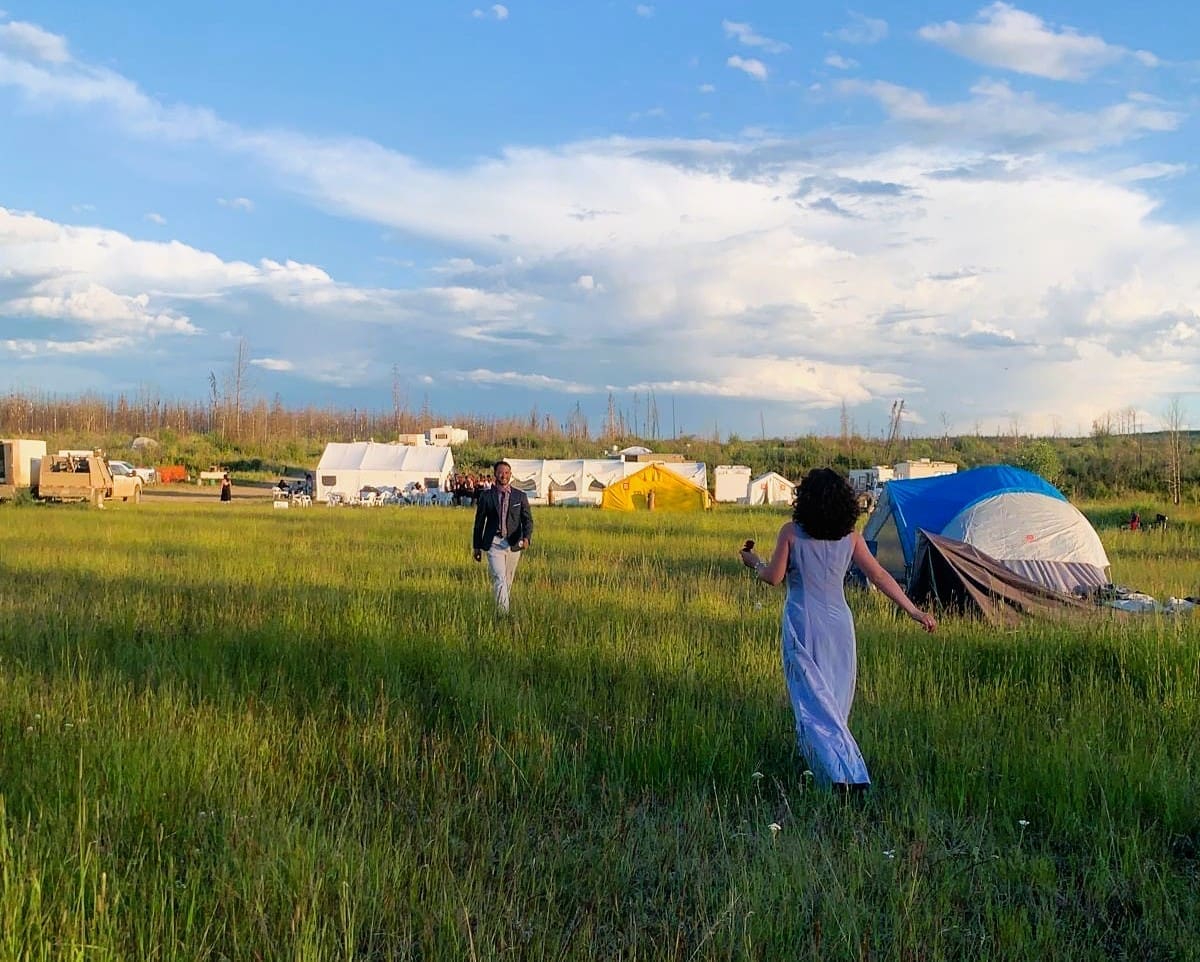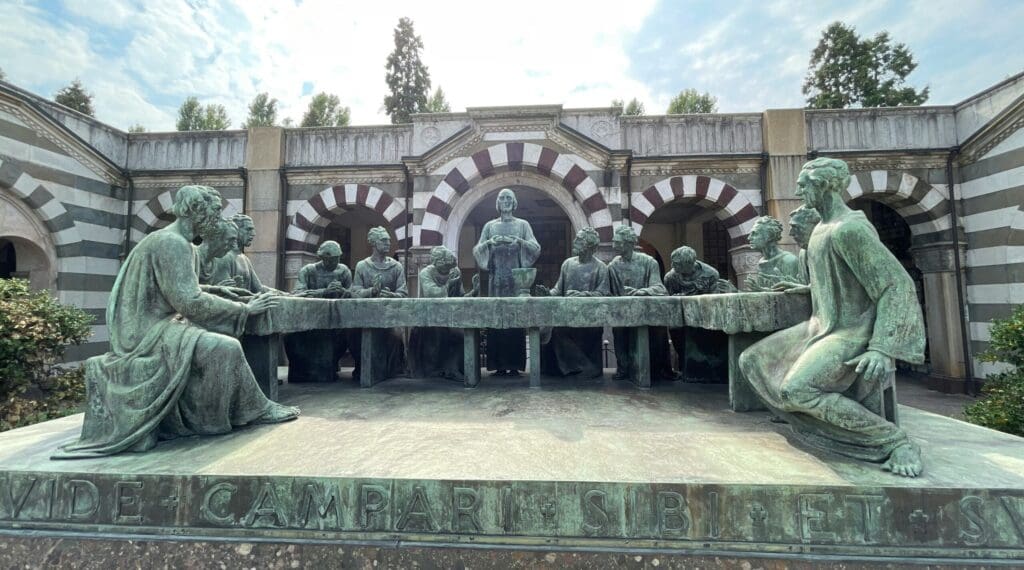R
My soul is a hidden orchestra; I do not know what instruments, what violins and harps, drums and tambours, sound and clash inside me. I know myself only as a symphony.
—Fernando Pessoa, The Book of Disquiet
Reading Luigi Giussani, even through a particularly good translation, scrambles one’s pre-conceived categories. Terms that ring familiar—such as “event,” the “I,” “experience,” “encounter”—take on a different, deeper dimension. As Gregory Wolfe, who has published several posthumous translations of Giussani since his death in 2005, puts it, his is “not the normal language of Christian piety.” Yet what is also unmistakable to readers of Giussani is a perception undoubtedly parallel to that of the crowds who heard Jesus, who were “astonished at his teaching, because he taught as one who had authority.” In Search of the Human Face is a magnificent précis of Christian anthropology and a sound explication of how God’s self-revelation in Christ anchors our humanity and transforms it.
“What Is Man That You Are Mindful of Him?”
In his extraordinary essay “The Sistine Madonna,” the Jewish-Soviet writer Vasily Grossman reflects on seeing the eponymous painting, which he terms “immortal”:
The painting speaks of the joy of being alive on this earth; this too is a source of its calm, miraculous power. The whole world, the whole vast universe, is the submissive slavery of inanimate matter. Life alone is the miracle of freedom. . . . The power of life, the power of what is human in man, is very great, and even the mightiest and most perfect violence cannot enslave this power; it can only kill it.
Grossman—whose works Giussani commended to friends—captures something essential to Giussani’s starting point: that, structurally, the human subject is a person with an “I” who is imbued with freedom, whose desires and needs are infinite. Giussani wagers that a path to fulfilling who we are rests on the paradoxical fact that “the ideal is the most concrete thing that exists.”
This might seem a strange emphasis in our self-centred era. In their hunger for stability and the transcendent, many young people speak of the liberation of being relieved “that it’s not just about me” when they discover traditional forms of worship. And yet Giussani begins his book with this: “An interest in our own I—here lies the first step on a truly human path.” So, what exactly does it mean to be interested in our “I”?
T.S. Eliot’s memorable lines from Choruses of the Rock, “They constantly try to escape / From the darkness outside and within / By dreaming of systems so perfect that no one will need to be good,” capture the moralism (far too common among Christians too) that mistakenly presumes that ethics precedes ontology and that our performance procures salvation. Giussani, rather, proposes a recovery of a Christian view of the human. A person is truly fulfilled, he argues, when, like the disciples, they run “into a presence that corresponded in an unexpected and clear way to the desire for truth, for beauty, for justice which constituted their simple and humble humanity.” Such encounters “establish a connection between the finiteness of their human face and the infinite mystery of their destiny.”
Christ’s Presence as an Event
In Peter’s speech to the people at Solomon’s portico after he has healed a lame beggar (Acts 3:11–26), he identifies Jesus as the fulfillment of several prophecies: as the suffering Servant foretold by Isaiah, as the Messiah from the Davidic line, and as a prophet in the line of Moses and Samuel. Peter concludes this section by invoking Abraham, the one through whom “all the families of the earth shall be blessed.”
In one of Giussani’s several exegeses of Scripture, Abraham becomes a prefigurement of Christ in the sense that Abraham’s following of God’s voice, in having “his consciousness . . . woven together with that presence,” was so total that Abraham’s discovery of an absolute dependence would become “the prototype of all those whom the Lord would one day choose.” For Giussani, the awareness of this absolute belonging is the beginning of morality:
God, the creator, made himself visible in Christ, and made humanity visible to itself, penetrated its existence, and moved it toward destiny. And this is the difficulty: not so much to be perfect, to be coherent, but to be ourselves. Life and time are given to us to become always more true, always more ourselves.
He adds that “in order for us to become truly wise, to desire, to be free—in order for us to become a true personality, which is the reason God created us—we must follow another. There is no other way, no intellectual effort or human cunning, that has the value of this method.”
Theologian Aaron Riches states that according to Giussani “it is no longer the man of genius who is preferred but it is the one who is lowly, who is simple, who is pure of heart, who is able to recognize this event, this encounter.” For Giussani, an “existential awareness of what faith truly is” does not emerge from “a reasoning process nor of our study.” Rather, it is fundamentally “the fruit of an encounter” that elicits one “to make a total response” and becomes an event, leading to a life that dramatically gains an inner cohesion, which in turn changes how we perceive our relationship with others, with what has been given to us in our time, talent, and treasure, and transforms even how we look at our sins and limitations.
Christ Exalts the Limit
One of the principal ways that Christ transforms our humanity for Giussani is not simply in extraordinary gestures but in experiencing a redefinition of the everyday, the banal. He writes that “the most minute things in our daily life acquire dignity, have a vast horizon, are no longer a source of tedium and suffocation, and become above all a peaceful responsibility. . . . The banal is not what is small or habitual but that which denies the infinite, a forgetfulness of the God through whom we exist.”
In Search of the Human Face is a magnificent précis of Christian anthropology and a sound explication of how God’s self-revelation in Christ anchors our humanity and transforms it.
This perspective is not solipsistic but involves “the limit par excellence,” which is “the person next to us, whoever he or she may be.” We see here a reversal of Sartre’s maxim: Heaven is other people. In regaining our “I,” we learn how to truly say “you” to others, a deficiency that Giussani diagnoses as “the ultimate and hidden root of violence” in human relationships.
The Positive Pedagogical Function of Sin in Salvation
Any self-aware person has observed how often we err and stray even from standards we set for ourselves. In this volume, Giussani spends much space examining the effects of sin, which he defines as “our disinterest, distance, our infidelity to the fact of God among us.” He is surprisingly optimistic, however, about the potential of sin to lead us outward to something positive. First, he notes that in our awareness of sin, “we verify our own ineptitude and weakness . . . our incapacity to be ourselves” and “sense our nothingness.” Second, he writes that
in the naked form of humanity’s original nature, which is hunger and thirst for the infinite, for the fulfillment of the self, this humiliating impossibility of walking on our own disposes us to look for something that would permit us to overcome our waywardness. It pushes us to search for what can heal us of this mortal wound. The sense of sin is thus an education in waiting for Christ; it builds in us an understanding of the supreme advantage of God’s offer of help; it disposes us to a newness for which we long.
As we request and receive forgiveness, our “personal unity and the energy to keep walking are born again,” giving us the ability to “value everything in the light of Christ’s presence.” Thus, “sin is not the last word.” Instead, we receive a mercy that repairs and restores us now, and we are helped to “recognize our misery, as beggars whose richness comes from asking and depending.”
A helpful illustration of Giussani’s point can be found in Shūsaku Endō’s work of historical fiction The Samurai—one of the great Catholic novels of the twentieth century. In it, a small group of low-ranking samurai and a Catholic priest in the seventeenth century undertake an arduous journey from Japan across three oceans to the New World, to Europe, and ultimately back to Asia and Japan after four years. What begins as a diplomatic mission to secure trading rights for Japan with European powers in exchange for an expansion of Christian missions in Japan completely changes as the samurai return to a Japan that is now closed off from the West and in which professing Jesus as Lord carries a death sentence. The leader of this Japanese group, Hasekura Rokuemon, is confronted with the question Is Christ of any use now that every external sign presses him to renounce this crucified King and save himself from a martyr’s death? Here is a brief excerpt of an exchange between Hasekura and his interlocutor:
“It’s almost as though you came to Japan simply so you could be arrested and meaninglessly killed. That’s just plain lunacy.”
“It is not lunacy,” I replied with a smile. “It happened because of the way I am. It’s very much like what your Buddhist priests call karma. Yes, this was my karma. That’s how it seems to me. But I believe now that God has made use of my karma to benefit Japan.”
“How do you think your God made use of it to benefit Japan?” the official asked, even more puzzled than before. . . .
“You have said that what I did was ridiculous. I understand that. But why did I knowingly perform such a ridiculous act? Why did I deliberately do something that seems so lunatic? Why did I come to Japan knowing I would die? Think about that sometime. If I can die and leave you and Japan to deal with that question, my life in this world will have had meaning.”
Here, in Hasekura’s gradual conversion, we see that he identifies so closely with Christ that it is no longer he who lives but Christ who lives in him (Galatians 2:20). We also glimpse a vivid example of what Giussani means when he writes, “Salvation means that we are loved to the point that even our greatest misery is useful for ourselves and for the world.”
A Serious House on Serious Earth
A central aspect of Giussani’s emphasis on Christ’s accompaniment is his stress on ecclesiology: “the Church, born to secure our relationship with Christ.” Giussani underlines the primacy of memory in his understanding of the human person, not as a simple recalling of a past event, but as the preserving of an event through time. History and memory, therefore, are not divorced but inextricably linked—a link that is guaranteed through the sacramental reality of the church, which is the continuation of the incarnate Word in history. Through our participation in this reality, we are called to make the journey of Mary and the disciples, who meet the gaze of the Word made flesh, so that like them we too can gain a certainty of him who is the substance of our life. Theologian Samuel Klumpenhouwer has noted that Giussani favours the meaning of memory as a present experience emerging in a relationship that is offered within and through the communion of the church.
Giussani echoes the church fathers in presenting the church as the “pillar and bulwark of the truth,” which unmasks and unseats the idols we make with our hands and enjoins us to the divine life. Melkite theologian Khaled Anatolios, one of the most astute modern interpreters of Athanasius, notes that “the force of the Christian message can only be felt once our attraction to idolatry is unveiled and healed.” He adds that
for Athanasius, the recognition of God as the ultimate truth about reality cannot come about merely through logical deduction but rather through the empirical witness of the Church to Christ’s life, death, and Resurrection, a witness that brings about the downfall of every form of idolatry by presenting a spectacle to the world of the infinite life of God that has broken into our finitude.
“Holiness as Desire for Life”
As we ponder Giussani’s proposal of a Christian anthropology in full—our very being made to encounter the exceptionality of Christ’s presence, who transfigures our limits and sins, and accompanies us fully through the church—our task consequently becomes one of finding and keeping a posture of patient and expectant waiting while resisting the cult of busyness.
In our practical lives, we expend so much time and energy on projects, activities, and institution-building that it’s hard to untangle and detach from the false notion of Martha, who is “anxious and troubled about many things.” We think that it’s all somehow up to us, the indispensable agents who will help God and others do what they could never otherwise do. As we get older and the vim and vigour of youth slows, my peers and I tend more and more to make the same observation: “I have far less time and energy to waste these days. I just want to spend it on something that lasts and means something.” So, what lasts? What is meaningful?
Giussani writes that in
the expectation of Christ’s final return—lived not as the resolution of present anguish or a formula for detachment, or even recrimination of the present time, but as the urgency to be awake to the truth of every contingent commitment, as the prophetic content of every serious love and responsibility toward the concrete path of life . . . a surprising affection for Christ flourishes, which is the supreme gift of the Spirit and the most authentic miracle of Christian life, of holiness. . . .
The privilege given to one who abandons everything to Christ, the determining presence of my own “I” and the maker of my destiny, does not obliterate and does not sidestep the intelligent, serious engagement that makes judgments, the reason that searches, or the heart that is committed to the point of sacrificing itself, or the will that spends its energy in the tension of a struggle with daily work: this privilege allows all of this to come true and to endure in time. The abandonment of the self to Christ implies the co-involvement of all the forces of the “I.” What we want to affirm, characterizing the Christian life or holiness, is that everything is done for a love.
In the final analysis, the “work of life becomes patience,” becomes “adhesion to a presence” and a labour of love as we await the coming of Christ, not just in its fullness at the end of time, but here and now.







